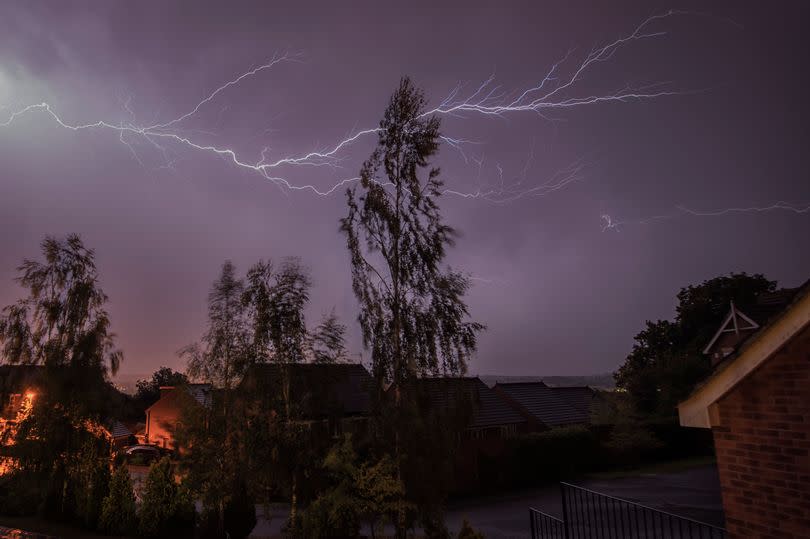Thunderstorms set to bring 24C blast to abrupt end

The glorious sunny weather will be brought to an abrupt end when violent thunderstorms hit the Midlands. A yellow weather warning has been put in place for much of the UK, bringing a risk of flooding and power cuts.
Heavy showers are expected between noon and 10pm on Sunday, May 12, according to the Met Office alert - a far cry from the scorching 'mini-heatwave' most of the UK has enjoyed this week. Temperatures have exceeded 24C for at least three days in a row, the Mirror reports.
But forecasters say it is unlikely Brits will see similar figures for the rest of May at least. Temperatures are set to tumble into the teens following the storms, the Met Office has said.
READ MORE: DWP issues update over concerns some may become 'ineligible' for PIP
While there will be sunny spells, strong winds will make it feel colder, particularly on Thursday and Friday. It doesn't look promising for the remainder of the month either as forecasters predict temperatures will be "generally around or just a little above average".
It prediction for May 16 to 25 states: "Changeable with showers developing by day across the UK during the latter part of the week and over the weekend. The heaviest showers and greatest risk of thunderstorms across southern parts. Temperatures generally around or just a little above average, though with winds tending to be light, still feeling warm in sunnier areas.
"Over the weekend there are signs that showers may start to ease from the north with drier, more settled conditions probably becoming established for a time. Confidence lowers into the following week with signals unclear how prolonged the influence of higher pressure will be. So after a potentially more settled spell of weather, unsettled conditions are likely to return during the week with the wettest conditions in the west. Above average temperatures more likely than below."

 Yahoo News
Yahoo News 
